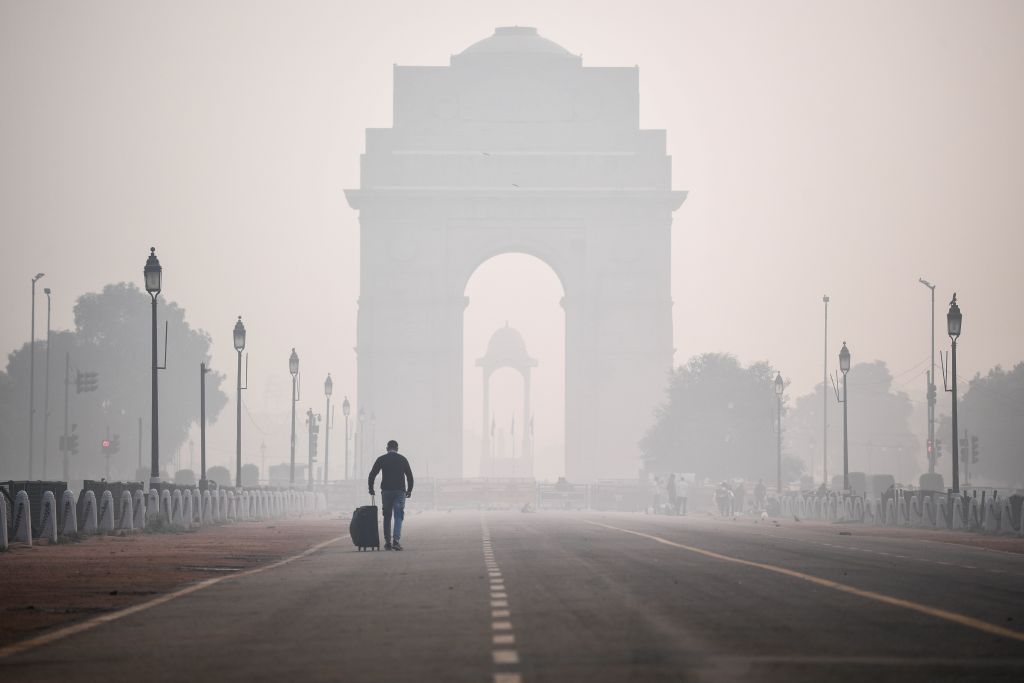- Wednesday, April 24, 2024

By: Shubham Ghosh
THE air quality in Indian capital New Delhi remained extraordinarily bad on Monday (8) forcing several students to stay indoors despite schools in the city reopening after the Covid-19 break.
The air quality of New Delhi is the worst among any capital city but it has been hazardous over the past few days, especially after the Diwali fireworks.
ALSO READ: Diwali celebrations leave Delhi air dangerously toxic
According to a Reuters report, even though the authorities eased restrictions on schools imposed when the pandemic first struck in March 2020, many parents decided not to send their children to the schools due to the hazardous air.
Pollution to cut Indians’ life expectancy: report
“The pollution in Delhi is hazardous. We as parents are afraid of sending our children to school,” Kamlesh Sharma, a parent, wrote on Twitter.
Air Quality Index should be below 50 (on the scale of 500) for air to be deemed safe. On Monday (8), it was 392 in New Delhi. Yet, it was a marginal improvement from 451 which was registered last week as moderate wind helped in dispersing some of the pollution.
While some schools resumed classes for higher grades, students aged 14 and below were allowed back in schools for the first time on Monday. But many schools saw attendance of less than 40 per cent on the first day due to parents’ fears over the hazardous air and pandemic risks.
“After COVID, pollution has emerged a major threat for public health particularly for children and senior citizens,” Ashok Agarwal, national president, All India Parents Association was quoted as saying by Reuters. He was also disappointed with the lack of enforcement and political will to improve the national capital’s air.
“With in-person schools finally opening after a long period of online classes, many parents seem reluctant to send children to school in the coming weeks due to the dual risk of COVID and pollution,” Sachin Taparia, head of LocalCircles, India’s largest community social-media platform, told Reuters.
While political parties have blamed each other saying not enough initiative is being taken to curb pollution, environmentalists said both the federal and state governments were reluctant to take steps because they feared that they would result in electoral setbacks.
Tanmay Kumar, chairman of India’s Central Pollution Control Board, wrote a letter to the country’s federal and state authorities saying they were not “taking sufficient measures to control pollution” and requested them to curb all activities that cause air pollution.
Randeep Guleria, director of All India Institute of Medical Sciences, told India Today TV channel that exposure to pollution was causing more harm than the use of tobacco or of smoking.
“If you have higher levels of air pollution then the chances of having more severe COVID and dying from it goes up,” he said.
Airborne particles of pollution can lead to cardiovascular and respiratory diseases such as lung cancer. In India, toxic air kills more than a million people every year.
The air quality in New Delhi and several parts of northern India has deteriorated during the past week as farmers continued to burn stubble in agricultural states around the capital besides fireworks on the occasion of Diwali, both happening despite an imposition of ban.
![]()